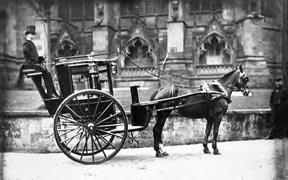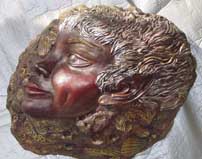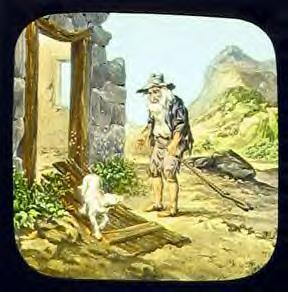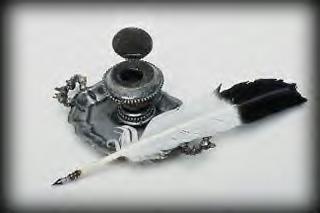A Rest Stop at the End

He kindly stopped for me-
The carriage held but ourselves-and immortality.”
Emily Dickinson
“Because I could not stop for death.”
The certainty of death and its final absoluteness are issues that humanity has struggled with for ages. We have images of sickle carrying, robed figures who hide in the shadows waiting to carry us away to death. The vast number of euphemisms for the concept clearly illustrates people’s fear of “passing away,” “going to the next world,” and even “kicking the bucket.” The fact that “kicking the bucket” is viewed as more comforting than the real word, “death,” humorously illustrates the power that mortality holds over many people.
Despite this common fear, Emily Dickinson paints death in images that appear comforting and tranquil. Death is transformed from the sickle bearing menace into a carriage driver who is kindly stopping to offer her a ride. Dickinson views death as simply another part of the journey that should not be feared.
Whether a person is religious or an atheist, the description of the carriage holding only death, the individual, and immortality has relevance. Immortality can be defined as either an afterlife or the finality of perpetual sleep. In any case, one cannot return to the previous part of the journey. The poem views death as something that should not cripple people in fear, but rather motivate them to achieve their goals and live life fully while experiencing it along the way. Death for Dickinson is like the final resting stop at the end of a long journey. Death is not something waiting in the dark in the hopes of stealing our lives….death is like a kindly reminder that we have completed the long journey and can now look back in ease at our living experiences and accomplishments.
All journeys must have a beginning, middle, and an end. Therefore, death is a natural part of each person’s journey. By fearing and obsessing constantly on the prospect of death, people fail to enjoy the pleasures, relationships, and accomplishments along the way.
What do you think about Emily Dickinson’s view of death?
Is Dickinson’s image of death comforting, strange, or unrealistic to you?
Thank you for reading!
--Carrie Goertz

 Breaking The Mold Studio
Breaking The Mold Studio


